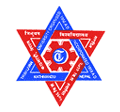
MS In Orthopaedic And Trauma Surgery
Affiliated to: Tribhuvan UniversityAbout Course
- Course Title : MS In Orthopaedic And Trauma Surgery
- Category/Level : Masters
- Course Duration (months) : 48 months
- Cost Range (NPR) : NA
- Affiliated to : Tribhuvan University
Course Description:
Goal:
This is a four-year residency programme that was started in 1998. This course is designed to produce specialist in orthopaedic and trauma surgery, who will have adequate knowledge and skills in orthopaedic & trauma surgery and can recognize and deal safely with a wide range of orthopaedic and trauma problems as consultants.
Course Objectives:
At the end of the four-year training, the students should be able to:
- Demonstrate broad understanding of fundamental principles of orthopeadic & trauma surgery;
- Posses adequate knowledge of relevant basic sciences and paraclinical subjects;
- Diagnose common clinical problems in orthopaedic & trauma surgery.
- Carry out pre-operate work-up and post operative management of orthopaedic & trauma problems (elective & emergency);
- Perform resuscitation and related emergency procedures in orthopaedic & trauma surgery patients;
- Provide first line surgical intervention in all types of othopedic & trauma surgery;
- Perform independently different surgical procedures in orthopaedic & trauma surgery;
- Provide training to undergraduate and mid level health workers in orthopaedic & trauma surgical procedures;
- Carry out research activities in orthopaedic & trauma surgery problems and publish.
Admission info
Eligibility Criteria:
- The candidate must have passed MBBS or its equivalent from recognized university, must have completed compulsory rotating internship and one year of housemanship in any discipline at a recognized hospital.
- Must be fully registered with the Nepal Medical Council.
- Must pass PG entrance examination, conduct by IOM.
Selection for admission:
Admission will be strictly on merit basis according to availability of seats.
Syllabus
Method of Training:
- The post graduate student will go through four years of full time residential training.
- Postgraduate residents will be encouraged to become self-directed learners. Teachers. Preceptors will function as guide only.
- Postgraduate resident will be the first person on duty in Unit/dept. twice a week.
- Private practice is not permitted.
- Take responsibility in OPD & inpatients as full time resident.
- Take primary responsibility for the investigation and pre and post operative care.
- Regularly assist in major surgical operations and gradually move from minor to major operations under supervision.
- They will actively participate in all departmental and unit academic activities.
- Guidance will provided in basic science subjects by the teachers of basic science departments of Institute of Medicine and designated preceptor and teacher in related subject. One preceptor will take only one PG student in one year.
The academic activities will be as follows:
- Demonstrations & guidance in basic science,
(Clinical epidemiology and medical ethics First Year - Presentation of assigned topic Once a week
- Journal club Once a week
- Group discussions Once a week
- Beside clinical teaching Twice a week
- Clinico-pathological conference Once a week
- Radiological demonstration Once a week
- Case presentation Daily 8-9 AM
Training Sites:
Respective Departments of TU, IOM
- For Anatomy, Physiology, Biochemistry, Pathology, Biostatistics, clinical Epidemiology and Medical Ethics.
Examinations:
It will consist of two components:
1. Internal assessment
2. Final Examination
1. Internal Assessment
- Log-book of day to day activities, participation and performances & OSCE. It will be regularly reviewed and signed by preceptor/tutor.
- After completion of each rotation, designated teacher will test the knowledge and performances of the candidate and comment on it. If found unsatisfactory, the candidate will have to repeat the posting.
- Internal assessment will carry a weight of 20% of the theory mark.
2. Final Examination
This will consist of three parts:
Part- I (Basic Science)
|
Theory Paper I |
Full Marks |
Pass Marks |
Theory Paper II |
Full Marks |
Pass Marks |
|
Anatomy |
100 |
50 |
Pathology |
100 |
50 |
|
Physiology |
|
|
Microbiology |
|
|
|
Biochemistry |
|
|
Pharmacology |
|
|
|
Genetics |
|
|
Biostatistics |
|
|
|
|
|
|
Clinical Epidemiology |
|
|
|
|
|
|
Medical Ethics |
|
|
|
|
|
|
Oral & Practicals |
200 |
100 |
Part I examination will be conducted by the end of 1st year. A maximum of three attempts will be allowed. Candidates failing in the third attempt will be dropped from the course.
Part II - Thesis Writing
Thesis subject will be chosen and approved by the end of the 1st year and should be submitted by the end of third year and will be examined by one external and one Internal examiner. The candidate will not be allowed to sit for final examination without acceptance of thesis.
Part III
|
Theory Paper I |
Full Marks |
Pass Marks |
Theory Paper II |
Full Marks |
Pass Marks |
|
Principle of Orthopaedic & Trauma |
100 |
50 |
Surgical Pathology & Surgical Management |
100 |
50 |
|
Surgery & Operative Surgery |
|
|
Clinical-Long cases |
100 |
50 |
|
|
|
|
Short cases |
100 |
50 |
|
|
|
|
Practical (OSCE)+ Viva |
100 |
50 |
Part III examination will be conducted after 4 years on completion of course of study and after passing part I examination and approval of thesis.
INQUIRY / APPLY COURSE
Offered by
Colleges offering MS in Orthopaedic and Trauma Surgery (Tribhuvan University) are as follows:
- Universal College of Medical Sciences, Ranigaon, Bhairahawa, Rupandehi
- National Medical College, Birgunj, Rautahat
- TU Institute of Medicine, Maharajgunj, Kathmandu
- Nepalgunj Medical College, B.P. Chowk, Nepalgunj-16, Banke
- Kathmandu Medical College, Clinical Science Complex, Sina, Kathmandu
- Nobel Medical College , Kanchanbari, Biratnagar – 5, Morang



















